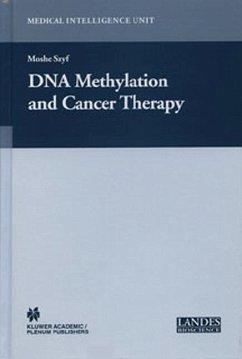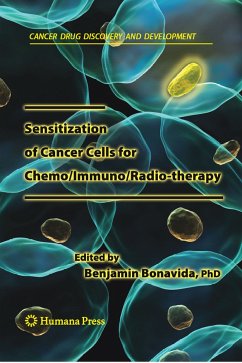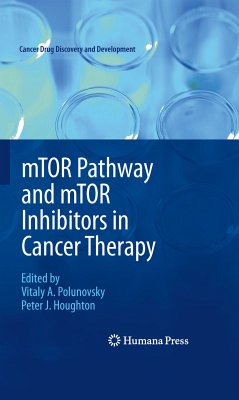
EGFR Signaling Networks in Cancer Therapy (eBook, PDF)
Versandkostenfrei!
Sofort per Download lieferbar
160,95 €
inkl. MwSt.
Weitere Ausgaben:

PAYBACK Punkte
80 °P sammeln!
The epidermal gro wth factor (EGF ) receptor and its downstream signal transduction networks have been implicated in the ontology and maintenance of tumor tissues, which has motivated the discovery and development of molecularly targeted anti-EGF receptor therapies. Over decades of study, the EGF receptor structure, its ligand binding domains, the physical biochemistry underlying its intrinsic tyrosine kinase catalytic function and the modular interactions with SH2, PTB, and SH3 domain containing signaling adaptor p- teins required for signal transduction, have been extensively dissected. Not ...
The epidermal gro wth factor (EGF ) receptor and its downstream signal transduction networks have been implicated in the ontology and maintenance of tumor tissues, which has motivated the discovery and development of molecularly targeted anti-EGF receptor therapies. Over decades of study, the EGF receptor structure, its ligand binding domains, the physical biochemistry underlying its intrinsic tyrosine kinase catalytic function and the modular interactions with SH2, PTB, and SH3 domain containing signaling adaptor p- teins required for signal transduction, have been extensively dissected. Not only is the EGF receptor the nexus of many streams of information, but it also forms one part of a calcul- ing device by forming dimers and oligomers with the other three receptors in its family in response to at least eleven ligands (some of which are expressed in multiple forms with overlapping or quite distinct functions). This phenomenon, while recruiting to the inner surface of the cell membrane and activating multiple second messenger proteins, also allows the possibility of cross talk between these systems, permitting a further layer of information to be exchanged. Less well described are the cross re gulation of the EGF receptor and other anti-apoptotic, mitogenic and metabolic signaling systems. The study of these systems has yielded new surprises. One hurdle in these efforts has been that signal transduction pathways have frequently been defined in the generic absence of their tissue-specific or cell-interaction specific context.
Dieser Download kann aus rechtlichen Gründen nur mit Rechnungsadresse in A, B, BG, CY, CZ, D, DK, EW, E, FIN, F, GR, HR, H, IRL, I, LT, L, LR, M, NL, PL, P, R, S, SLO, SK ausgeliefert werden.













